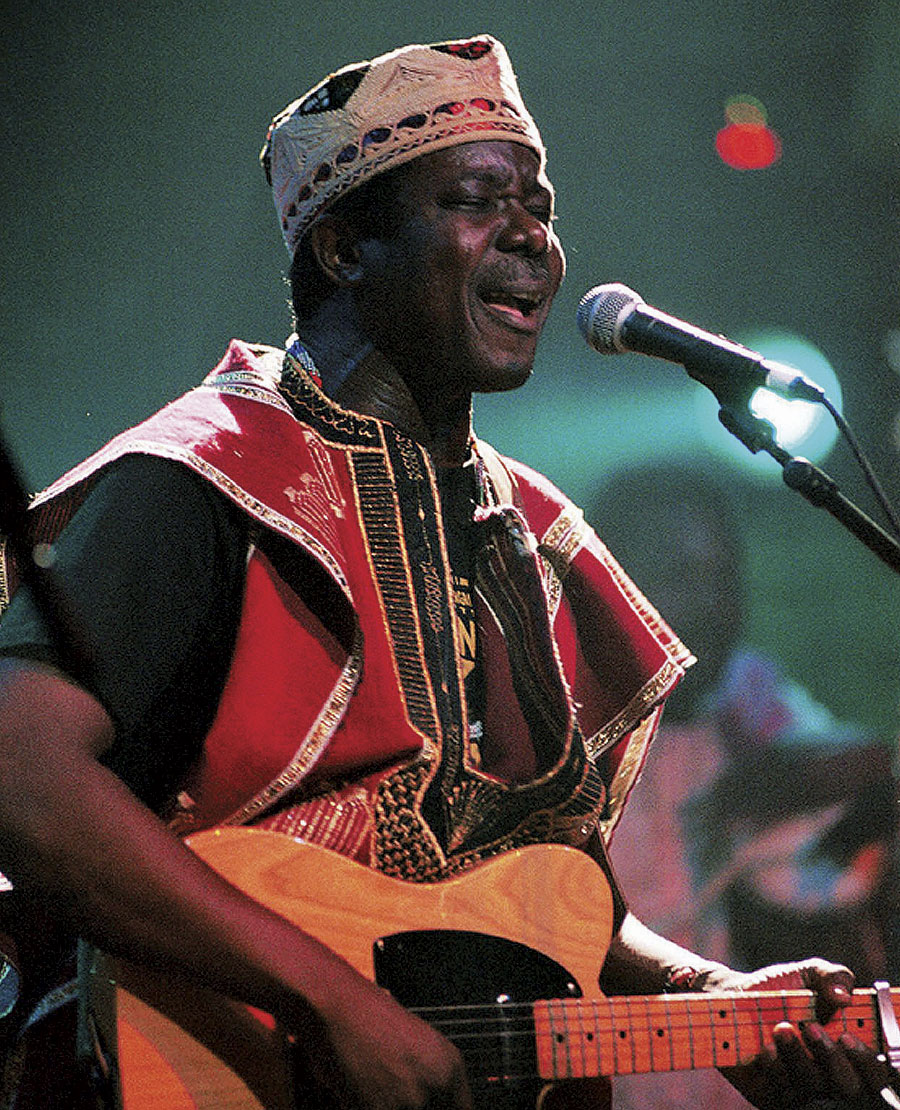
photo courtesy of the african arts network
NOTE: Since print date, concert has been canceled due to visa issues.
Bob Marley’s death in 1981 came as a shock (he was only 36), and felt as though it symbolized the end of an era of tantalizing possibility: the rise of a true international superstar from the developing world, with a vision of conscience and universal rights delivered with the authority of the dispossessed. Marley’s moral power (and some of his greatest songs) derived from those who suffered in Jamaican slums and, by extension, those on the wronged end of global inequality in all its forms.
Well, he wasn’t going to be able save the world, even had he lived, but one of Marley’s lasting achievements was more subtly political—introducing millions to an international groove that undermined the hegemony of rock ’n’ roll (the Rolling Stones knew greatness when they heard it, drawing one-time Marley compatriot Peter Tosh into their decadent fold, and record label). When Marley was gone, and so suddenly, the music business looked around for candidates who might fill the world-music void he left behind.
Picture me, in 1982, walking into Ohio’s Magnolia Thunderpussy Records (and you thought Electric Fetus was an ill-advised name) during my freshman year of high school. I was transfixed by a huge album-cover poster hanging over the racks of LPs: a field of green, red, and yellow streaks, with a bearded man gazing intently into the distance. I had just come across King Sunny Adé’s Juju Music.
From the moment needle hit vinyl, this was a sound unlike any I’d ever heard. The rhythm was loose, elastic; the vocals (in a language totally unfamiliar) delivered with slow, taut confidence. And throughout was a guitar, played by Sunny Adé himself: chiming, grooving, snaking around the beat. Talking Heads’ epochal Remain in Light had come out just two years before, incorporating dense sounds inspired by African pop, but here was the real thing: beautiful, knowing, a human sound that spoke from a culture seemingly free from concern about the children of Elvis Presley and the 4/4 beat.
There was no Google at the time, or even an internet (the cordless phone was on its way!), so it took me a while to learn that King Sunny Adé had been tirelessly recording in his native Nigeria, where his birth into a royal family garnered him the prince-like Yoruba title of Omoba. He was a huge star there, and his ascension in the U.S. sparked off a wave of interest in non-English language global music (taking Marley’s internationalism in another direction) that would presage the everything-at-once nature of the digital age.
Now nearing 70, King Sunny Adé continues to tour. He has described his songs as parables, such as the stubbornly surging “Ja Funmi,” which mixes imagery of the human mind, a vulture, and the divine (it works, even with the language barrier). His stature has become sufficiently legendary that, when he accepted his place in the Afropop Hall of Fame and dedicated the award to the late Michael Jackson, it was plainly understood as one titan nodding to another.
King Sunny Adé
July 13
Cedar Cultural Center
thecedar.org






